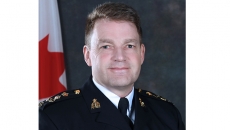Now is the time to stand together. We can’t allow division and intolerance to take the place of our unity and our determination. We must reject racism and hatred wherever we encounter it. Let’s be kind, be calm and be safe.
What provisions does the government have in place for September and beyond if there is a resurgence/ second wave of COVID-19?
B.C has been extremely prepared from the start, before we even had a case, and we’re not letting up now. That's why our restart is slow and cautious and is based on those basic principles that we know will protect people: physical distancing, hand washing, and staying home when you’re sick. As we head toward the fall, Dr. Henry and Minister Dix are continuing to make sure that we have enough capacity in our healthcare system to handle more cases. So far, we haven’t needed to use the 271-bed emergency hospital we set up at the Vancouverr Convention Centre, but we’re keeping it on stand-by in case it’s needed. We are also going to be ramping up testing and contact tracing heading into flu season to make sure we’re detecting cases and outbreaks quickly. Dr. Henry is keeping a close watch on the situation.We’re going to do everything we need to do to keep people safe and stem the spread of COVID-19.
Why did the government decide to open schools in june just for one month on a voluntary part time basis and not wait it out till September?
In BC, we’ve done an amazing job keeping each other safe and flattening the curve. While we respect Ontario’s decision, our plan for a gradual return to school is based on the very different situation here in BC, and on the science-based advice of Dr. Bonnie Henry. For comparison: on the same day in May that Ontario announced almost 430 new confirmed cases of COVID, we had just two here in British Columbia. Dr. Henry has advised that it is safe for us to move to this stage of giving parents the option of putting their kids back in school. If it wasn’t safe to do so, we wouldn’t be opening schools. The health and safety of staff and students is our top priority. At the same time, we need to stay diligent, and that’s why we are looking at a measured, gradual approach to transitioning more students back into the classroom. We also respect that some parents will have concerns and prefer to keep their kids learning at home - that’s why we are making the return entirely optional.
Advocates for child care are calling on the government to accelerate the $10 a day child care promise as a way to help parents return to the workforce during such challenging COVID-19 times. Is that something the government is working on? Since we were elected nearly three years ago, our govt has been working hard on our childcare plan, making it more affordable and accessible for families. We have invested over $2 billion in childcare, to help families all across the province. Affordable childcare is a key priority for our government, and the COVID-19 pandemic has shown how critical it is for families and for the economy. During Phase 1 of our Restart Plan, we invested $38 million to ensure essential service workers could have access to child care. Now that we are in Phase 2 of BC’s recovery, we continue to work hard to make these important investments in childcare, so parents can get back to work.
When can British Columbians expect the Canada-US border to open again?
Our top priority is keeping British Columbians safe. The situation in the United States is very concerning and our hearts go out to our neighbours to the south. We would certainly need to see a real improvement there before we felt comfortable with the federal government opening the border to non-essential travel. At the start of this pandemic, our government successfully called on Ottawa to close the US border to non-essential travel in order to protect British Columbians. We also took the exceptional step of setting up our own border screening program to make sure every person arriving in B.C. from out of the country has a self-isolation plan. Parliamentary Secretary Ravi Kahlon played a key role in getting those supports up and running and we are happy to see other jurisdictions are now copying our approach. In the first five weeks of the program, we checked over 37,000 people’s self-isolation plans and made over 26,100 follow up calls to make sure people are self-isolating. 124 people are currently in quarantine at hotels. Borders may be a federal responsibility, but we’re going to keep doing everything we need to do to keep people in B.C. safe.
More than 1,700 complaints have been filed with the (BCNU) since March 20 from nurses who say there isn’t enough PPE to protect them while working during the pandemic. How concerned is the government about the nurses' safety and what can be done to address the shortage of PPE?
Healthcare workers are the frontline in our battle against COVID-19. They have been courageous in responding to this unprecedented crisis– their safety is our top concern. We have maintained a steady stream of PPE for healthcare workers, and continue to actively source PPE, knowing that there’s going to be more demand as we carefully restart our economy. We’re pursuing every approach to increase supply. This includes working with our federal partners on national bulk purchases, building partnerships with new suppliers, and conserving and managing existing supply. Before they reach the front line, every individual piece of PPE put into circulation in B.C.’s healthcare system has to meet strict standards. We would never ask a healthcare worker to go to work without providing them the appropriate protection.
British Columbia's economy is heavily dependent on tourism. Has there been any discussion with the Federal Government and the airline industry regarding re-opening air travel? When can British Columbians expect air travel to resume?
Every sector of the BC economy has been impacted by the COVID-19 sector, and our government knows that the tourism industry has been particularly hard hit. BC’s Minister of Tourism, Arts and Culture, Lisa Beare, has been in regular contact with tourism companies to discuss the challenges they’re experiencing and their ideas for recovery. Our government is also working collaboratively with the federal government on how best to support the tourism industry. International tourism is expected to resume in Phase 4 of BC’s Restart Plan, which will begin when a vaccine is discovered or there is community immunity. Over the summer I encourage British Columbians to plan on taking part in all of BC’s wonderful tourism attractions, as they carefully open up again. We must support each other as much as possible in these difficult times.
With nearly half of all COVID-19 deaths in Canada linked to long-term care homes, what is the government doing to make seniors feel safe and avoid outbreaks at long-term care facilities?
This pandemic has been incredibly hard on seniors and their families. Many are scared and feeling alone - we are working hard to protect and support them. British Columbians have stepped up across the province, staying home and practicing physical distancing to protect seniors and those most vulnerable. At the same time, Dr. Henry and Minister Dix have put in strong infection control measures to protect seniors in long term care and assisted living facilities. In particular, Dr. Henry ordered that staff in long-term care, assisted living, stand-alone extended care hospitals and provincial mental health facilities should be working only at one facility. That’s one of the most important things we can do to protect our seniors and those who care for them by helping to reduce the risk of virus transmission between facilities. I also encourage seniors - whether you live in long-term care or not - who are feeling alone or who need support to call 2-1-1 to get connected to volunteers who can help deliver groceries or just chat on the phone. We need to practice physical distancing while also masking sure that our elders feel less alone.
There has been a wave of anti-Asian racist sentiment with attacks and assaults on transit and in the public. Two MLAs Bowinn Ma and Anne Kang both spoke candidly against the attacks. What is the government doing to address these hate crimes?
I’ve been saddened, angry and disgusted by the rise in racism. Hate crimes and racism have no place in our multicultural and vibrant province. Racism is a virus. It must be stopped. We must all challenge racist remarks when we hear them. We cannot allow stereotyping and scapegoating to stand. And we must report hate crimes and racist incidents when we see them happen in our communities or places of work. Our government is committed to fighting racism, which is why we established the Resilience BC anti-racism network last fall. This network connects people and communities throughout the province with information, supports and training to assist them in addressing racism. Our diversity and inclusivity are what make our province so special and we must work together to protect that.
The City of Vancouver has announced they are out $2 billion and they have reached out to the Province for help. What sort of help can the City of Vancouver as well as other municipalities who have reached out to the Province expect?
This pandemic is causing significant financial challenges for municipalities. In April, we announced immediate relief to help communities manage cash-flow pressures so they have more cash on hand to continue to deliver the services people count on right now. We’ll be continuing to listen to local governments. As with everything in our COVID-19 Action Plan, we’ll be reviewing this as we go, to see where we’re at with the pandemic. If needs change or this goes longer, we’ll take a look at that. We have also called on the federal government to support our municipalities with important operational funding, such as public transit. It’s going to take hard work from both the provincial and local governments, but we’ll get through this together.
Any message to all British Columbians in the midst of COVID-19.
Now is the time to stand together. We can’t allow division and intolerance to take the place of our unity and our determination. We must reject racism and hatred wherever we encounter it. Let’s be kind, be calm and be safe.


